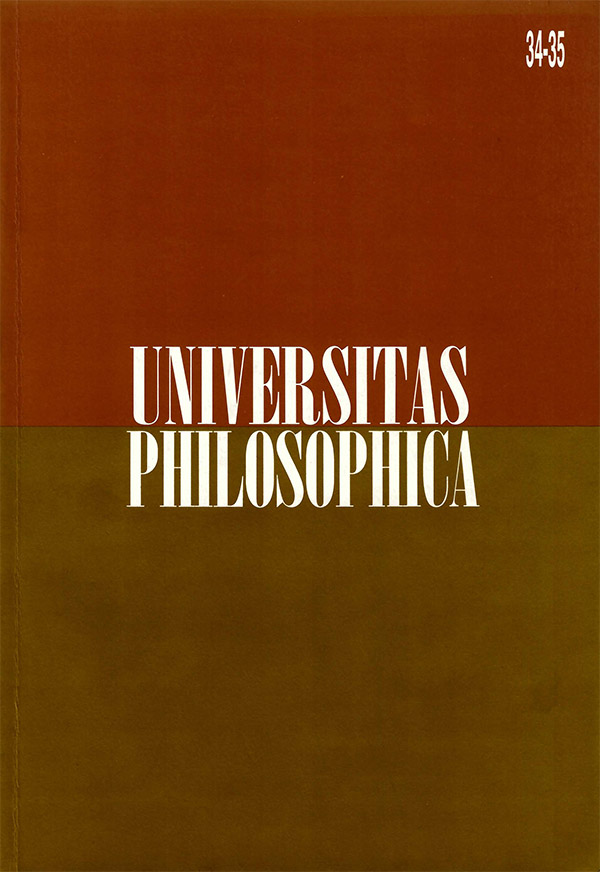Abstract
This paper intends to shed some light on the ways Nietzsche uses the philosophic category of truth. It is necessary to make a ordered presentation of each one of these, in order to reach a complete vision of everything Nietzsche meant to involve with such term. This has been done meaning to respect the deliberate non-systematic nature of Nietzsche's thought. Also this work has been done keeping in mind the moments and situations that marked his life and work. A distinction between two thematic branches in which Nietzsche's usages of truth can be sorted, is done with a merely methodological purpose: one is the ontological-existential side, the other is the historiemoral side. This distinction implies the division of this paper in two parts: the first is dedicated to three axis: -truth-being, truth-life, truth-science-, the second part shows the connections between truth and becoming, and the connections between genealogy and life. Finally, a sense of the term truth is stated, a sense that can be used in both branches and in almost every stage of Nietzsche's work: truth as a dissolvent of everything that is reificated.
This journal is registered under a Creative Commons Attribution 4.0 International Public License. Thus, this work may be reproduced, distributed, and publicly shared in digital format, as long as the names of the authors and Pontificia Universidad Javeriana are acknowledged. Others are allowed to quote, adapt, transform, auto-archive, republish, and create based on this material, for any purpose (even commercial ones), provided the authorship is duly acknowledged, a link to the original work is provided, and it is specified if changes have been made. Pontificia Universidad Javeriana does not hold the rights of published works and the authors are solely responsible for the contents of their works; they keep the moral, intellectual, privacy, and publicity rights.
Approving the intervention of the work (review, copy-editing, translation, layout) and the following outreach, are granted through an use license and not through an assignment of rights. This means the journal and Pontificia Universidad Javeriana cannot be held responsible for any ethical malpractice by the authors. As a consequence of the protection granted by the use license, the journal is not required to publish recantations or modify information already published, unless the errata stems from the editorial management process. Publishing contents in this journal does not generate royalties for contributors.


